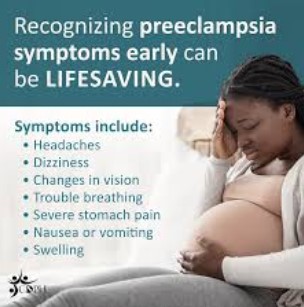
Preeclampsia, formerly called toxemia, happens when you are pregnant and have high blood pressure, too much protein in your pee, and also swelling in your legs, feet, and hands. It can range from mild to severe. It usually happens late in pregnancy, though it can come earlier or just after delivery.
The only cure for preeclampsia is to give birth. Even after delivery, symptoms of preeclampsia can last 6 weeks or more.
You can help protect yourself by learning the symptoms of preeclampsia and by seeing your doctor for regular prenatal care. Catching preeclampsia early may lower the chances of long-term problems for both mom and baby.
What Is Postpartum Preeclampsia?
This is a rare condition that can happen when you have high blood pressure and too much protein in your pee after giving birth. When this happens, it is usually within 48 hours of childbirth. But it can happen 6 weeks or later after childbirth. This is known as late postpartum preeclampsia.
Immediate medical treatment is needed for postpartum preeclampsia. It can cause seizures or other serious issues if not treated quickly.
Preeclampsia vs. Eclampsia
Preeclampsia can lead to eclampsia, a serious condition that can have health risks for mom and baby and, in rare cases, cause death. If your preeclampsia leads to seizures, you have eclampsia.
Preeclampsia Symptoms
In addition to swelling (also called edema), extra protein in your pee, and blood pressure over 140/90, preeclampsia symptoms include:
Sudden weight gain over 1 or 2 days because of a large increase in bodily fluid
Shoulder pain
Belly pain, especially in the upper right side
Severe headaches
Change in reflexes or mental state
Peeing less or not at all
Dizziness
Trouble breathing
Severe vomiting and nausea
Vision changes like flashing lights, floaters, or blurry vision
But you may have preeclampsia and no symptoms, so it is important to see your doctor for regular blood pressure checks and urine tests.
High blood pressure and preeclampsia
When you are pregnant, high blood pressure that is not controlled can cause serious problems for you and your baby. You may have high blood pressure before you become pregnant. Or you might develop it for the first time during your pregnancy. Preeclampsia is a serious high blood pressure condition that can happen during pregnancy or soon after you give birth.
Talk to your doctor about any blood pressure issues you have. They should check your blood pressure at each prenatal visit.
How Quickly Can Preeclampsia Develop?
Preeclampsia can happen as early as 20 weeks into your pregnancy, but that is rare. Symptoms often begin after 34 weeks. In a few cases, symptoms develop after birth, usually within 48 hours of delivery. But remember, you may have preeclampsia without symptoms.
Preeclampsia Causes
Many experts think preeclampsia and eclampsia happen when your placenta does not work the way it should, but they do not know exactly why. A lack of blood flow to your uterus could play a role. Genes are also a factor.
Other High Blood Pressure Disorders in Pregnancy
Preeclampsia is one of four blood pressure disorders that can happen when you are pregnant. The other three are:
- Gestational hypertension. This is high blood pressure that starts after the 20th week of pregnancy but does not cause high amounts of protein in your urine. It usually goes away after delivery.
- Chronic hypertension. This is high blood pressure that starts before you get pregnant or before the 20th week of pregnancy.
- Chronic hypertension with superimposed preeclampsia. This is chronic high blood pressure that gets worse as pregnancy goes on, causing more protein in urine and other complications.
Preeclampsia Risk Factors
These risk factors increase your chance of getting preeclampsia.
High risk factors:
- History of preeclampsia
- Carrying more than one baby (twins, triplets, or more)
- Chronic hypertension
- Kidney disease
- Diabetes
- Autoimmune conditions such as lupus
- Having multiple moderate risk factors
Moderate risk factors:
- Being pregnant for the first time
- Being pregnant more than 10 years after your last pregnancy
- BMI over 30
- Having a family history of preeclampsia (your mother or sister had it)
- Being age 35 or older
- Having complications in your past pregnancies (like having a baby with low birth weight)
- Having in vitro fertilization (IVF)
- Being Black (this is because of inequities that increase your risk of illness)
- Being lower income (this is because of inequities that increase your risk of illness)
Preeclampsia Complications
Preeclampsia can keep your placenta from getting enough blood, which can cause your baby to be born very small. This is called fetal growth restriction.